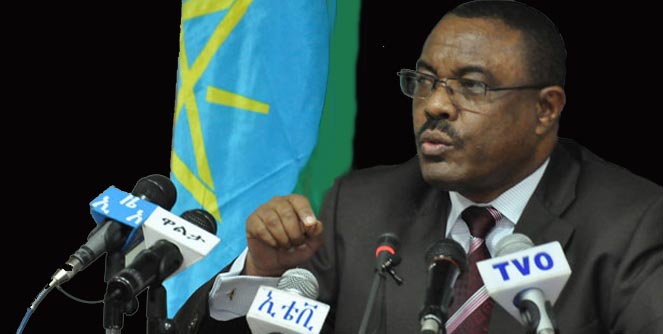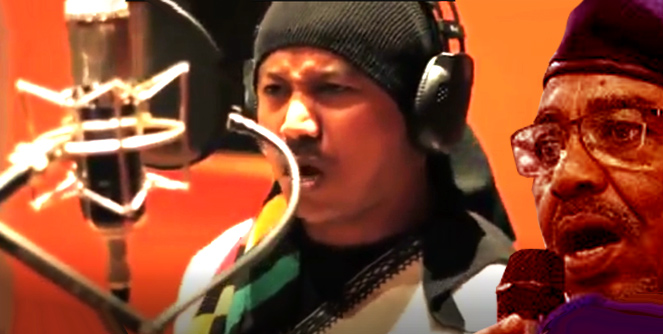Eight EDA Member Organization Agree To Unite Their Military Wings
Gedab News,(May 9, 2010): On May 4, 2010, eight member organizations of the Eritrean Democratic Alliance (EDA), an umbrella organization of Eritrean opposition forces, signed a memorandum of understanding to unify their military wings under one command.
.
The eight signatories are:
 (1) Eritrean Federal Democratic Movement (EFDM); (2) Eritrean Islamic Party for Justice and Development (EIPJD); (3) Eritrean Liberation Front (ELF, also known as “Jebha”); (4) Eritrean People’s Congress (EPC); (5)Democratic Movement for the Liberation of Eritrean Kunama (DMLEK); (6) Red Sea Afar Democratic Organization (RSADO); (7) Eritrean National Salvation Front (ENSF, also known as “Dehnet” or “Inqaz”); and (8) Eritrean People’s Democratic Front (EPDF, also known as “Sagem”). Two additional member organizations of the EDA, the Eritrean Islamic Congress (EIC) and the Eritrean Nahda Party (Nahda), which do not have military wings, have agreed, in principle, with the memorandum of understanding.
(1) Eritrean Federal Democratic Movement (EFDM); (2) Eritrean Islamic Party for Justice and Development (EIPJD); (3) Eritrean Liberation Front (ELF, also known as “Jebha”); (4) Eritrean People’s Congress (EPC); (5)Democratic Movement for the Liberation of Eritrean Kunama (DMLEK); (6) Red Sea Afar Democratic Organization (RSADO); (7) Eritrean National Salvation Front (ENSF, also known as “Dehnet” or “Inqaz”); and (8) Eritrean People’s Democratic Front (EPDF, also known as “Sagem”). Two additional member organizations of the EDA, the Eritrean Islamic Congress (EIC) and the Eritrean Nahda Party (Nahda), which do not have military wings, have agreed, in principle, with the memorandum of understanding.
.
The agreement is a culmination of a sustained campaign by the constituencies and sympathizers of the organizations who, for over a decade, appealed to the leadership to eschew multiplication of fronts and work towards unity. After initiating many “confidence-building” baby steps, the political organizations have been, of late, conducting coordinated military campaigns which are regularly announced in their websites (see also Reuters here and Gedab News here.)
External Factors
After Eritrea’s independence on May 24, 1991, the Eritrean opposition groups had suspended their military operation anticipating the announcement of a mechanism for the exercise of peaceful political pluralism in Eritrea. Their hopes were dashed a month later when Eritrea’s strongman, Isaias Afwerki, announced that, henceforth, there wouldn’t be any political contest among political organizations (“nay wddebat hashewye”) in Eritrea. The political organizations re-activated their military wings shortly thereafter.
In the 1990s, the base for Eritrea’s opposition organizations was Sudan. This is because Ethiopia had a mutual defense agreement with Eritrea, and Sudan was in a state of cold war with Eritrea. Until the late 1990s, most of the Ethiopia-based Eritrean organizations (RSADO, DMLEK, Sagem) were largely dormant and those based in Sudan (ELF and the Islamist organizations) were active in Western Eritrea.
After the breakout of the Eritrea-Ethiopia war in 1998 and the Sudan-Eritrea reconciliation which followed the “peace agreement” between Sudan’s Eastern Front and Khartoum, the situation was reversed. The Sudan-based Eritrean opposition groups were denied political space by Sudanese security and the Ethiopia-based Eritrean opposition groups were granted the political space they needed to mobilize. This is why, of late, most of the military communiqués announced have been by Ethiopia-based organizations and their confederates. These operations are expected to be amplified with the recent Ethiopian reassessment of its strategy towards Eritrea: that it will no longer take a passive “host nation” role and that it will actually be more involved towards making the opposition more effective.
Internal Dynamics
Within the Eritrean opposition in general, and the EDA specifically, the question of whether (a) ethnic groups have the right to self-determination up to and including secession; (b) religious groups have the right to govern their jurisdiction in accordance with their religious teachings and (c) armed resistance against the Eritrean regime is justified, were the subject of heated discussions for most of the last decade.
The issues dealing with ethnic and religious autonomy, known by their short-hand name of “article 2 and article 3”, were the subjects of much debate and acrimony in Eritrean cyberspace. As for armed resistance, it was so contentious that when one member of the EDA announced a military communiqué, it was not unusual for another EDA member organization to issue a press release denouncing the military communiqué.
In March 2005, the EDA amended its charter to address these thorny issues by stating that (a) citizenship is the foundation of rights and duties and (b) ethnic and religious rights are subordinated under a national constitution and (c) the mechanism of the struggle is conditioned on the circumstances and the selection and execution of the mechanism is to be left to the leadership of the EDA.
The EDA Charter (here in Tigrgna) also states that the EDA respects the autonomy of the member organizations which occasionally results in dynamic tension among them.
Copyright 2010 Gedab News (awate.com). All rights reserved. This material may be published, broadcast, or redistributed with proper citation of awate.com or Gedab News. awateteam@awate.com



Awate Forum